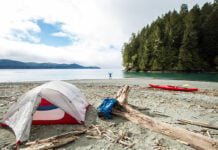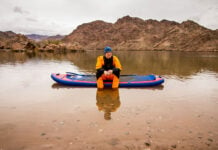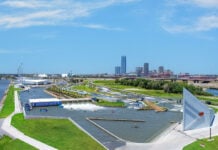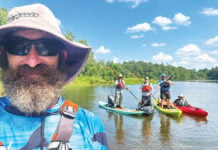PETERBOROUGH, ON, August 25, 2021 – Visitors to the new Canadian Canoe Museum (CCM) will see and hear languages and voices from Indigenous communities the moment they step into the museum, thanks to funding from TD Bank Group.
The new home for the CCM, set to break ground this fall and open in 2023, will feature a 17,000 square foot exhibition gallery that will share the history and enduring relevance of the canoe and kayak.
With a significant gift of $500,000 over five years from TD, the Museum will work directly with individuals in eight Indigenous communities. The funding also enables the CCM to hire an emerging Indigenous museum professional. These actions will help ensure that knowledges, perspectives, and voices from Indigenous communities are directly represented in the exhibitions and educational programming.
“The CCM has a deep commitment to collaborative relations with the Indigenous communities of origin across Turtle Island (Canada) for the watercraft in the Museum’s collection,” explains curator Jeremy Ward.
As part of this work, the CCM is hiring people from eight different Indigenous communities to support language-related projects that will create content for the new exhibits and support collections care. Building outwards from relations with Curve Lake, Hiawatha, Alderville and Scugog – local Michi Saagig First Nations on whose territory the CCM resides – the Museum will work with Inuit communities in northern Labrador and Nunavik, Mi’kmaq in the east and the Haida Gwaii Museum in the west. In each community, the Museum’s team will gather knowledge about canoes and kayaks, their roles in resource harvesting, changes caused by settlement, and the resurgence of Indigenous watercraft-making and use as part of community healing.
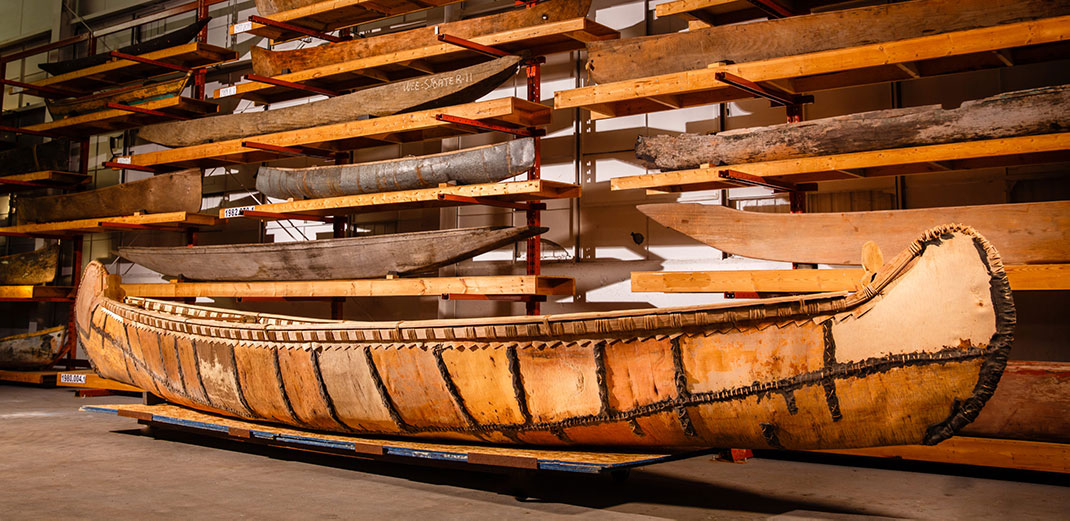
Ward elaborates, “All work supports languages from Indigenous communities, whether by recording vocabulary about canoes in Anishnaabemowin, interviews conducted by fluent Haida speakers with language learners, or translating conversations from Michif or Inuktitut, ensuring Indigenous People can speak their truths in their own language, and voice.”
The Michi Saagig dialect of Anishnaabemowin will be used throughout the Museum and within its exhibits alongside English and French, and other languages from Indigenous communities will feature in relation to specific watercraft.
Anne Taylor, the CCM’s Language Advisor for local Williams Treaties communities, emphasizes the importance of having Michi Saagiig Anishinaabemowin incorporated throughout the exhibits: “CCM ezhinkaadeg yaamgad omaa Michi Saagiig. Wgii kendaanaawaa Michi Saagiig anishinaabe nake ge zhi aabjitoowaad aki minwaa ziibiisan ge gchi nibi ji mno bimaadziwad. Michi Saagiig anishinaabemowin mshkowziimgad miidash nake ezhi giidgoyang. Pane aabjitooyang iw zhiibiisan ge gchi nibi iw pii gooji zhaayang miigo ji mno taagwak iw anishinaabemwin ge ji miinigid giw e bi yaawaad. Mii iw anishinaabewin ge tamgak iw gaa bi zhiwebak minwaa niw aanso kejanan minwaa niw mno bmaadziwnan.”
[Translation: “The Canadian Canoe Museum sits in Michi Saagiig territory. The Michi Saagiig Anishinaabeg have been thriving on the lands and waters within their territory for countless generations. It is imperative that Michi Saagiig Anishinaabemowin occupy a place of honour and respect within the Museum, as Anishinaabemowin contains the history, stories and traditions of these lands and waters and the Michi Saagiig people, who continue to thrive and travel the same water routes as countless generations before.”]
The CCM looks forward to honouring this responsibility with the First Nations that host the Museum on their territory, and with many other Indigenous Nations across Turtle Island (Canada).
“We are extremely proud to support the Canadian Canoe Museum through the TD Ready Commitment, the Bank’s global corporate citizenship platform,” said Doris Bear, Vice President, Indigenous Banking at TD Bank Group. “By supporting programming that elevates language and voices from Indigenous communities, and working together with local community members, we are ensuring the history, knowledge, and the accomplishments of Indigenous Peoples are carried forward. Initiatives like this one that elevate the language and culture of Indigenous Peoples are an important step as we collectively work towards Truth and Reconciliation as Canadians.”
Funding for the CCM’s Indigenous Languages Program marks the largest investment made to date by TD Bank Group through TD Ready Commitment program in the Peterborough region.
For more information about the new museum or the CCM’s collaborative relations work with Indigenous communities visit canoemuseum.ca/collaborative-relations.
About The Canadian Canoe Museum (CCM)
With a world-class collection as a catalyst, The Canadian Canoe Museum inspires connection, curiosity and new understanding. In partnership with individuals, groups and communities – locally, provincially and nationally – we work to experience and explore all that our collection can inspire. This sees students opening their minds in our galleries; community members connecting through artisanry; people of all ages getting on the water and learning to paddle; and exhibitions and events that spark conversation and collaboration.
About the New Museum
The Canadian Canoe Museum is building a new home for its world-class collection along the water’s edge in Peterborough, ON. The new museum will be located on a five-acre site in Peterborough, ON that will provide stunning west-facing views of Little Lake, a connection to the Trans Canada Trail, and is surrounded by public parks. It will become a vibrant community space for outdoor activities and the Museum’s canoeing and outdoor programs and events.
The Canadian Canoe Museum has a unique opportunity to create a new cultural destination that will inspire visitors to learn about Canada’s collective history and reinforce our connections to land, water and one another – all through the unique lens of the iconic canoe. Learn more at canoemuseum.ca/new-museum.
For further information or interview requests, please contact: Rachelia Giardino Marketing & Social Media Specialist [email protected] 705.748.9153 ext. 216
Kokomis Tchiman, a 26-foot long birchbark canoe built by Marcel Labelle, Métis elder and canoe-builder from the Mattawa Ontario region, sits on display in the Canadian Canoe Museum’s collection storage centre. Photo by Fusionriver Photography. | Photo courtesy of the Canadian Canoe Museum.



